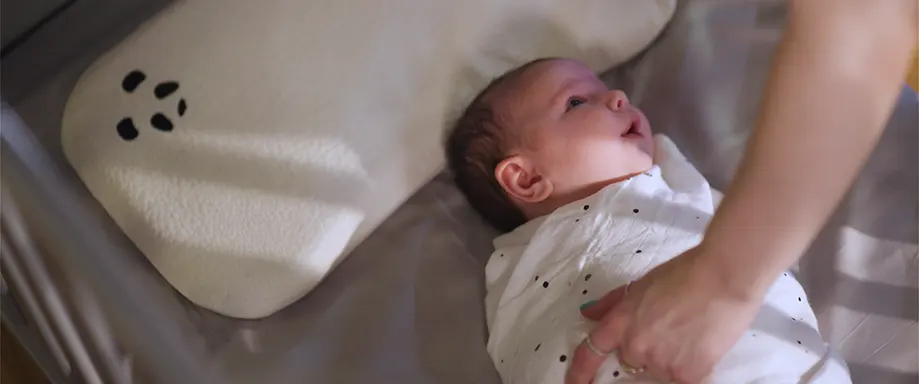Best time for a twelve-year-old to hit the bed

Ah, the great bedtime debate!
As a parent of a twelve-year-old, you may find yourself wondering what is the best time for your preteen to hit the hay. But fear not – we've got you covered with some fun and creative tips to help you determine the perfect bedtime for your child.
First, consider your child's individual sleep needs. Pay attention to your child's behaviour and energy levels to determine what works best for them.
Next, think about your family's schedule. Does your child have to wake up early for school or extracurricular activities? If so, a bedtime that allows for enough sleep is crucial.
On the other hand, if your family's schedule allows for a more flexible wake-up time, you may have a bit more wiggle room when it comes to bedtime.
Take all of this into consideration and try to figure out the perfect time to start reading that bedtime story! If you ask us – 9 PM would be a perfect time. But, just as we said earlier, every child is different!
How many hours of sleep should twelve-year-olds get?
When it comes to a child's sleep, there's no one-size-fits-all answer – especially when it comes to twelve-year-olds! But one thing is clear: getting enough sleep is crucial for your child's health and well-being.
So, how many hours of sleep should your twelve-year-old be getting? The American Academy of Pediatrics recommends 9-12 hours of sleep for children ages 6-12. However, some experts suggest that twelve-year-olds may need closer to 10-11 hours of sleep per night to feel well-rested and refreshed.
But it's not just about the total number of hours of sleep – the quality of that sleep is important too! Deep sleep, also known as slow-wave sleep, is crucial for physical and mental restoration. During deep sleep, the body repairs and regenerates tissue strengthens the immune system and consolidates memories and learning.
And what about babies, toddlers, school-aged children and teenagers?
Babies need a lot of sleep to grow and develop, typically ranging from 14 to 17 hours a day.
Toddlers require a similar amount of sleep, but usually ranging from 11 to 14 hours a day.
School-aged children should aim for 9 to 11 hours of sleep each night, which can help them stay focused and energised during the day.
Teenagers may feel like they don't need as much sleep, but they should still aim for 8 to 10 hours of sleep each night to support their physical and mental health.
Why do bedtimes matter?

Do you remember when you were a kid and your parents would read you a story, tuck you in, and kiss you goodnight? That's a bedtime routine! And guess what? It's not just about being cosy and cute – having a bedtime routine is actually super important for your health!
Let's talk about circadian rhythm. That's just a fancy way of saying your body's natural sleep-wake cycle. When you have a consistent bedtime routine, you're helping to regulate your circadian rhythm. That means your body knows when it's time to wind down and get ready for sleep, making it easier for you to fall asleep and stay asleep.
And why is a good night's sleep so important? Well, it helps your brain and body recharge! When you're asleep, your brain is busy forming new neural pathways and consolidating memories. Plus, your body is repairing and regenerating tissue, strengthening your immune system, and releasing hormones that help you grow and develop.
By establishing a healthy bedtime routine, you're setting yourself up for a lifetime of healthy sleep habits. So go ahead, get cosy, and have sweet dreams!
Establishing a bedtime routine

First off, let's make it fun! Ask your child what they would like to do before bed. Maybe they want to have a dance party or play a board game. Whatever it is, incorporate it into your routine. Next, establish a consistent bedtime that works for your child's age and schedule. This will help regulate their body's natural sleep-wake cycle and make falling asleep a breeze.
Now it's time to get cosy! Create a relaxing sleep environment with soft blankets, comfortable pillows, and some soothing music. Maybe even dim the lights to make it extra cosy.
You can also incorporate some relaxing activities like reading a bedtime story, doing some gentle stretches, or practising some mindfulness exercises.
And finally, remember to be consistent! Try to stick to your bedtime routine every night, even on weekends or during holidays. This will help your child get used to a regular sleep schedule and make it easier for them to fall asleep and stay asleep.
Bedtime tips
Here are some fun and creative bedtime routine tips to help your little ones get more sleep and better-quality sleep:
- Set a consistent bedtime that works for your child's age and schedule. This will help regulate their body's natural sleep-wake cycle and make falling asleep easier.
- Keep the room quiet and dark. Use blackout curtains or an eye mask to block out any unwanted light and noise.
- Create a comfortable bed by investing in soft pillows, cosy blankets, and a comfortable mattress. Encourage your child to choose their own bedding to make them feel involved in the process. For example, for your younger kids, Panda makes for an excellent choice!
- Establish a screen-free time before bed. The blue light from electronic devices can interfere with sleep, so try to limit screen time to at least an hour before bedtime.
- Avoid giving your child any food or drinks that contain caffeine or sugar before bed, as these can make it harder to fall asleep.
- Incorporate some relaxing activities into your bedtime routine, such as reading a book, doing some gentle stretches, or practising some deep breathing exercises.
To wrap things up
In conclusion, determining the best bedtime for 12-year-olds is crucial for their overall health and well-being. As children's sleep patterns change with age, it's important to adjust their bedtime accordingly. Implementing a consistent bedtime routine can also help establish healthy sleep habits that can last a lifetime. By considering factors such as school schedules, extracurricular activities, and individual sleep needs, parents can determine the ideal bedtime for their 12-year-old.
Shortly, prioritising children's sleep and promoting positive bedtime routines can lead to better physical and mental health outcomes.
But let's hear from you! If you're a parent, what do you think, what time should 12-year-olds go to bed? And how can you help them achieve a better sleeping routine? Let us know in the comments!

















There are no comments yet
"*" indicates required fields